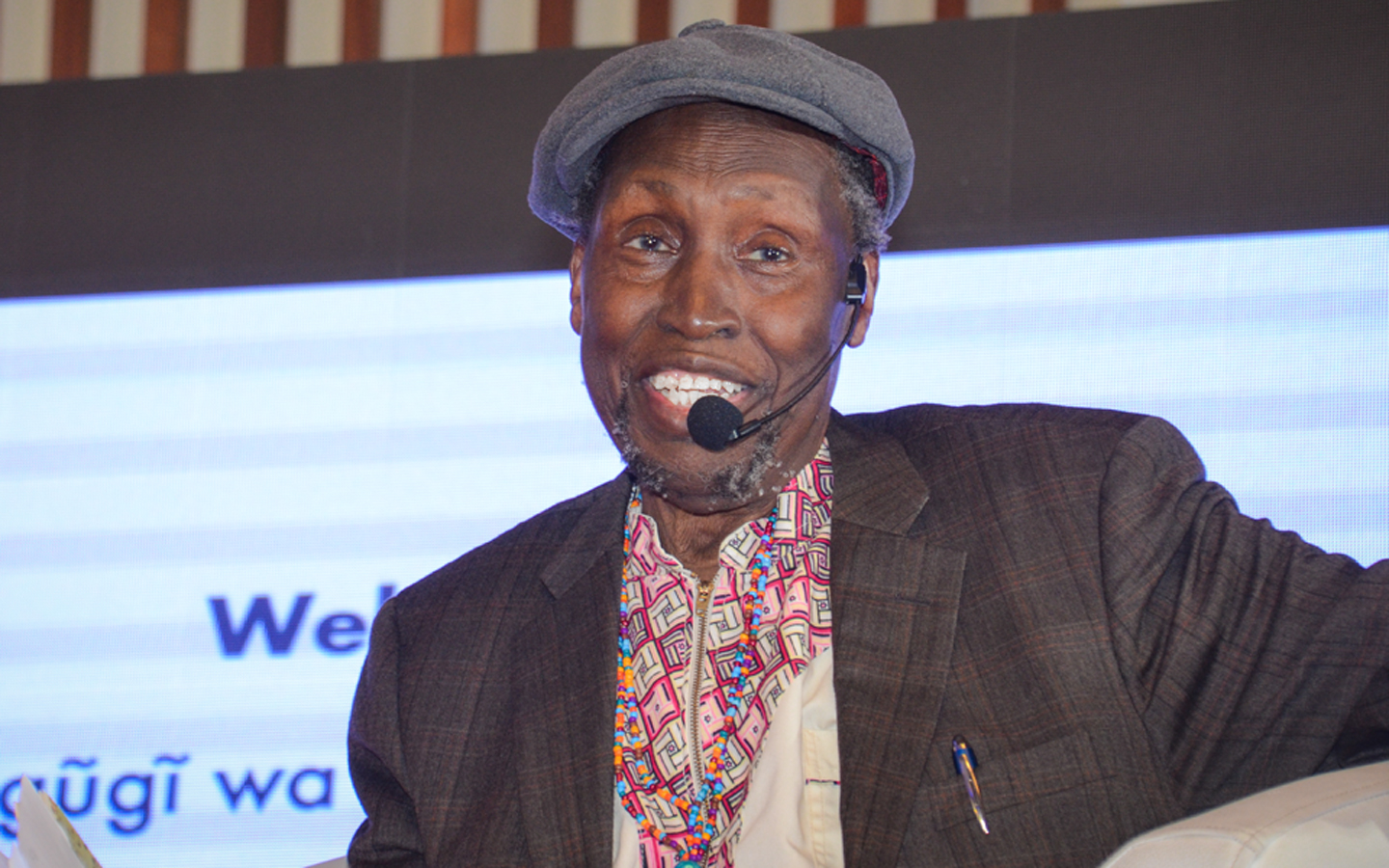There was no doubting who was the star of the opening day of the second International Publishers Association’s seminar on African publishing, held in Nairobi, Kenya on 14/15 June. With his warm, toothy smile, his curling tufts of beard as if parts of the bush has clung to his face, and his jaunty dance steps – he can still make the moves at 81 – the Kenyan writer, activist and sage Ngugi wa Thiong’o had the room entranced with a wide-ranging keynote address that dealt with colonialism and the importance of indigenous languages, and also included some unexpected singing.
IPA vice-president Sheikha Bodour was among those getting a book signed and her Kalimat publishing house in the United Arab Emirates is now poised to secure a deal to publish Thiongo’s work in Arabic.
Often cited as a contender for the Nobel Prize for Literature, Thiong’o has been writing for more than 60 years and for the last three decades has had a revered status in African letters. His speech included elements of personal history when he talked about the work done by Heinemann Africa in the Sixties, but also made serious points about the effect of colonialism. He contends that while such houses did much to make names like Chinua Achebe known around the world, because they were published in English many people in Africa did not know about them because they weren’t published in local languages.
“These writers had visibility in the world, invisibility in the continent. It’s what I wrote about in Decolonising the Mind. We are told that nationhood requires a European language. The message is clear. African languages tear the nation apart; European languages put the nation together. With European languages one can share in the goodness of globalisation; with African languages, one is shut out of the global heaven on earth.”
But a session from charity Dubai Cares presented research demonstrating the value of teaching in the mother tongue, and Thiong’o praised the Kenyan government for re-introducing African languages on the school curricula.
The singing came when he noted that English was associated with ‘glory’. With a friend joining him stage, he sang: ‘Glory Glory Halleluiah’, then pointed out that African languages were associated with ‘Gory’, “so in our minds were sung: ‘Gory gory hell forever, Burning charcoal black for ever’.
He sang with a grin, but there was seriousness behind his words too.







